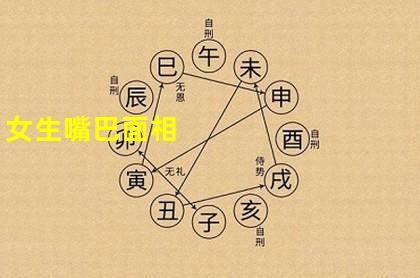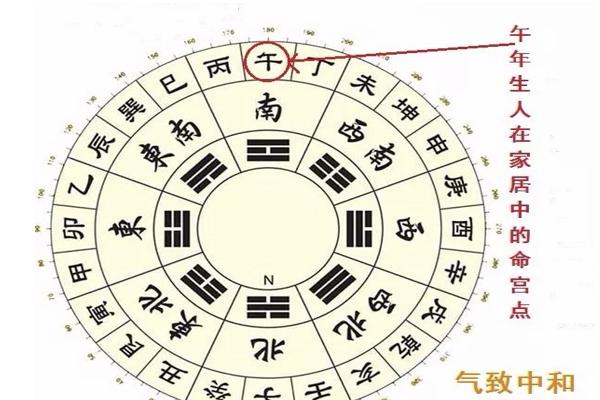1, how to see people's heart in the eight characters
The eight characters is an ancient fortune-telling art, which analyzes the combination of the heavenly stems and earthly branches of the year, month, day and hour of birth to speculate on a person's personality and destiny. In the eight characters, you can also see to a certain extent whether a person's heart is broad-minded or not. Next, from the combination of the interpretation of the eight characters and the characteristics of broad-mindedness, we will introduce how to read a person's heart through the eight characters.
Let's look at the combination of Heavenly Stems and Earthly Branches in the eight characters. In Bazi, the Heavenly Stem represents a person's external characteristics and behavior, while the Earthly Branches represent a person's internal character and willpower. People with broad-mindedness tend to have some characteristics in their Bazi. Generally speaking, if there are softer Heavenly Stems such as A, B, C, D, etc., combined with softer Earthly Branches such as D, S, W, etc., such a combination can show the soft and calm side of a person's heart. This softness will make a person open-minded, friendly, and able to accept the different points of view of others.
Whether a person's heart is broad-minded can also be observed from the relationship between Sang Sheng and Xiang Ke in the Eight Character Signs. The relationship between the Heavenly Stems and Earthly Branches in the Eight Characteristics is one of mutual promotion and symbiosis, while the relationship between the Heavenly Stems and Earthly Branches in the Eight Characteristics is one of mutual constraints and struggles. If a person has a strong phasic relationship in the Eight Characteristics, such as a combination of phasic Heavenly Stems and Earthly Branches, it means that they have the characteristics of inclusiveness and the ability to live in harmony with others. On the other hand, if there are a lot of mutual-negative relationships in the Eight Characteristics, such as the combination of the Heavenly Stems and Earthly Branches that are mutually-negative, it may indicate that the person is more impulsive and irritable, and is prone to bring their own emotions to others, and has a narrow-mindedness.
A person's heart can also be seen through the interrelationship of the five elements in the eight characters. The five elements in the eight characters include wood, fire, earth, gold and water, each representing different characteristics and personalities. If a person has a balanced distribution of the Five Elements in the Eight Characteristics, with no extreme favoritism towards any one element, it means that they are open-minded and able to adapt to different environments and people. If a person has too much of one element in his or her Eight Characteristics, he or she will be narrow-minded and unable to accommodate the different opinions and views of others.
In addition to looking at the combination of the eight characters, we can also observe a person's behavior and performance to determine whether he or she is broad-minded. People who are broad-minded usually show the following characteristics: 1. they can maintain an open attitude towards the views and opinions of others and are willing to listen to different voices; 2. they can be objective and fair in dealing with things and do not take sides; 3. they have a heart of compassion and are willing to help others and can tolerate the shortcomings and mistakes of others; 4. they will not be jealous of others in terms of their successes and accomplishments, and they can sincerely bless the accomplishments of others. Achievements. Broad-minded people tend to be able to transcend themselves, do not take the heart of the gentleman's heart, treat others well, and face the ups and downs of life with a broad mind.
Through the combination of the Heavenly Stems and Earthly Branches in the eight characters and the relationship between them, we can initially determine whether a person's heart is broad-minded or not. At the same time, by observing a person's behavior and performance, we can also further verify the characteristics of his/her broad-mindedness. Bazi is only a kind of fortune-telling technique, which cannot fully determine a person's character and destiny. In judging a person's heart, other aspects of his/her qualities and performance need to be taken into account. The important thing is that we need to treat others with a broad mind, appreciate the strengths of others, accept the shortcomings of others, and be kind to others to create a harmonious and tolerant environment.

2, how to read people's heart and chest in the eight characters
In traditional culture, the eight characters is a method of projecting fate, through the eight characters can be seen in a person's character and fate trends. The character and destiny of a person can be seen through the eight characters, and the heart and pattern of a person can also be indirectly reflected in the eight characters. Let's explore how to tell a person's heart in the eight characters.
We need to understand what the Eight Characteristics are. Bazi, also known as the Four Pillars Eight Characters, is based on a person's birth year, month, day, and hour to project. Through the combination of Heavenly Stems and Earthly Branches, eight characters, or four pillars, can be obtained. Each character has corresponding five element attributes, including gold, wood, water, fire and earth. The interrelationship of the five elements in the Eight Character Natal Chart reflects a person's character traits and destiny trend.
In the Eight Character Natal Chart, the Day Pillar represents a person's destiny and is an important pillar. By analyzing the interrelationship between the five attributes of the Day pillar and the Heavenly Stems and Earthly Branches, one can initially see a person's character and heart. For example, if the Five Elements of the Day Pillar emphasize on Gold and Wood, it means that the person has perseverance and aggressiveness in his/her character, and his/her heart tends to be more open-minded and able to accommodate more things and opinions. On the contrary, if the Five Elements in the Chinese character column emphasize Water and Fire, it means that this person is impulsive and stubborn, and his/her mind is relatively narrow, making it difficult for him/her to accept different points of view. Of course, the interrelationship of the five elements in the eight characters is very complicated and needs to be analyzed comprehensively to reach an accurate conclusion.
In addition to the Day Pillar, the other three pillars (Year Pillar, Month Pillar and Hour Pillar) in the Eight Characteristics can also provide some clues to determine a person's mind. The Year Pillar and the Month Pillar represent a person's environment and family background, which can indirectly influence a person's character and heart. If the Five Elements in the Year Pillar and the Moon Pillar favor Earth and Wood, it means that the person grew up in a good family environment and education, and is relatively broad-minded. On the contrary, if the Five Elements are skewed towards Water and Fire, it means that the person may have faced some challenges and difficulties while growing up, and is relatively narrow-minded. The Hour Pillar represents a person's socialization and interpersonal relationships. If the Five Elements favor Gold and Wood, it means that the person is more open and mellow in socializing.
In addition to the above pillars, an important concept in the Eight Characteristics is the Hurt Official and the Food God. The Hurt Official and the Food God are two important concepts in the Heavenly Stem, and they represent the way a person thinks and behaves. The relationship between Hurt Official and Food God can indirectly reflect a person's heart and mind. If the relationship between Sad Guan and Food God in a person's chart is balanced, it means that the person is more open-minded in his/her thinking and behavior, and is able to reach out to and accept different points of view. On the contrary, if there is an imbalance in the relationship between the Wounded Officials and the Eating God, such as the Wounded Officials being too strong or the Eating God being too strong, it means that the person's thinking and behavior is more paranoid and relatively narrow-minded.
The horoscope can indirectly reflect a person's mindset and pattern. By analyzing the relationship between the day pillar, year pillar, month pillar, hour pillar, and the injured official and the food god in the eight-character chart, we can get a preliminary understanding of a person's character traits and the degree of his or her open-mindedness. Of course, the interrelationships of the five elements in the Eight Character Table are very complicated and require a comprehensive analysis by a professional teacher. Moreover, a person's open-mindedness can not only be judged by the Eight Characters, but also needs to be assessed in conjunction with his/her daily speech, behavior and interpersonal interactions. Therefore, in understanding a person's heart, we can start from the eight characters, but can not rely on the eight characters alone to make the final judgment.

